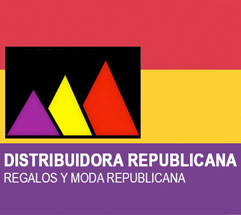What Does Side Agreements Mean
Secondary restrictions usually appear when the main agreement is used as a type of property, as collateral for a loan, Cohen said. «Ancillary agreements are private information agreements, and they are information that affects the value of the contract as property or the ownership characteristics of the contract that delimits the property, and this second contract… is hidden from interested third parties who are otherwise trying to determine what is the value of the property or what are the characteristics of the main agreement,» he says. «Ancillary restrictions are actually bad if there is no good reason to hide this information from third parties, which is otherwise called fraud.» You`ll be surprised to learn that sales and IR employees sometimes reduce «incidental agreements» with the customer, in which the merchant lends the customer a small amount of money if necessary to award the loan and complete the deal. Their first reaction might be, «but it doesn`t happen in my dealership,» and while we hope it`s true, it happens more often than it should. In the absence of a letter, if you want to amend the contract before or after the contract, the changes to the contract could lead to a reformulation of other clauses, so the parties may find themselves in a situation where many conditions need to be reformulated, which could be tedious and very costly. Other laws also apply to ancillary agreements, Cohen noted. For example, ancillary agreements may themselves be evidence of securities fraud. Secondary parties such as Merrill Lynch could be subject to aid and assistance laws, which can be both a crime and a civil injustice, while private actions for damages for aid and assistance in securities fraud are no longer permitted.
Court discussions about secondary restrictions date back at least to the 19th century and probably earlier, and they are also a common feature of recent financial scandals, Cohen said. «There is at least some anecdotal and circumstantial evidence that ancillary agreements are a fairly important phenomenon put into play by quite demanding people, where there is a lot of money at stake,» he said. «Ancillary restrictions used for fraudulent purposes generally involve some kind of omission that conceals the incidental agreement, rather than commissions – that is, affirmative misrepresentation.» Accessory agreements effectively co-opt the other party (Merrill Lynch in Enron`s example) so that they do not whistle the agreement. Using the contract as property also makes property easier to hide than material property, he said. No wonder «incidental agreements» are a bad idea. Generally, employees doing these businesses think that loans are «low risk,» but they are not. Employees will often attempt to document the «incidental agreement» in writing, so that there is an enforceable contract between the merchant and the customer, but these «incidental agreements» may not correspond to the «truth in the granting of credits» – federal requirements. Regardless of this, your dealer certainly does not want to be able to play the collection role if one of these customers does not pay his credit. Most of the time, these customers disappear and avoid any collection effort. The dealer loses money.
What is a letter? A letter is a document that is usually used as a complement to a contract. The problem with a subsidiary letter is that its validity as a binding document can be easily questioned, even if the intent of the parties at the time of execution is that it is legally binding and that these «incidental agreements are an example of the importance of third-party interests in contracts,» Cohen said.

